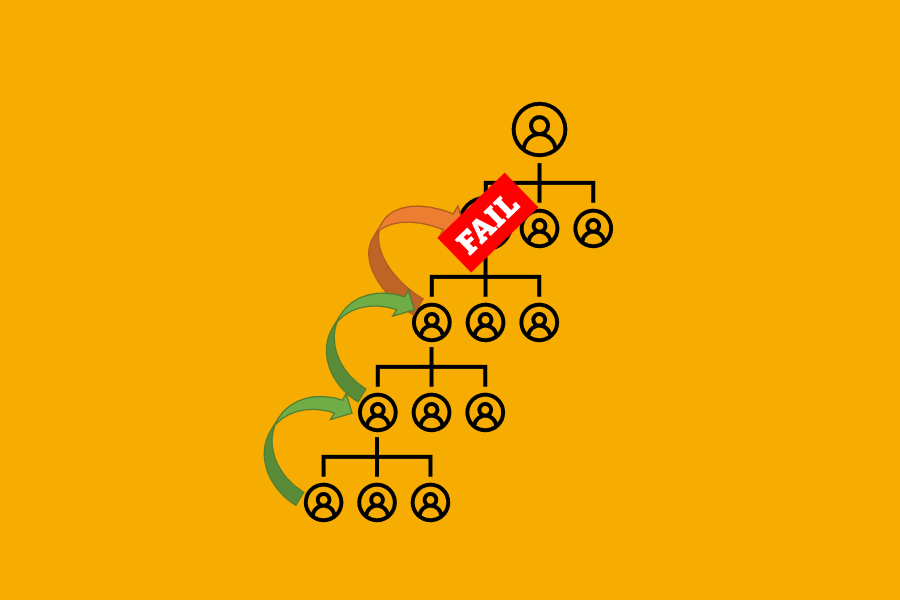
Is the Peter Principle alive and well?
Chloe was a superstar game developer. She was imaginative and she understood what their customers wanted in a modern game; she thrived as a creator of characters, scenes and design. Naturally, she was promoted to a team-lead position and there she also thrived as she trained and championed others and led a team to build several top-selling games. It seemed another natural step that Chloe would be promoted to the next level up where she would have overall business and production responsibilities. But she wasn’t a natural at the business side of game production and others were disappointed in her performance. She missed the creative side of the business and she stopped thriving in her work.
The “Peter Principle” was developed (with a satirical tone) by Laurence J. Peter over 50 years ago. But the principle that describes Chloe’s rise past her sweet spot of competence, is real and still alive and well in today’s world, at least according to a study of over 50,000 US sales employees cited in a 2018 Forbes article. Many people in organisations will also recognise this dynamic in their own workplace.
The Peter Principle describes how a person will inevitably be promoted to the level of their incompetence in a hierarchy. If an employee performs well in one position, it’s likely they will be promoted to the next level up. This promotion is based, of course, on their past performance and not on their ability to meet the requirements of the higher position. It’s easy to assume that a successful professional will be able to manage others because they were so competent in doing the job themselves.
But leading is a completely different story – that higher level position will require different skills and the person just promoted might not be truly qualified for that job.
As an organisation continues to promote people based on performance in their current jobs, individuals will inevitably reach a position where they are no longer an excellent performer and this is where they will stay – in a position where they are probably not the best person for the job.
Imagine this happening in all departments of an organisation – always promoting from within and always promoting because of current performance.
What can you do about it?
First of all, don’t assume they will be fine; recognise that different skills are required, talk to the people pushing for the promotion
- Make sure that the promotion isn’t being given as a reward for past results. This isn’t the right way to reward great results.
- Be clear about the skills that are needed in the next level
- Put some teeth into these questions:
- Is the person capable and a good match for the next level job?
- Can the new skills be trained and does this person have the aptitude to learn them?
- Do they really want this new job or just the better title, status and an increase in pay?
- Train people in leadership skills and other skills needed for that position, before they are in that position – e.g., create an emerging leaders programme.
- Be clear about the role and what it entails and promote a person based on demonstration of those skills or at least an expression of interest in developing them.
- Provide a mentor who has been down that road and can advise the individual on how to occupy and navigate their new position.
- Provide a leadership coach to support a new leader in their transition up.
- Create a culture where individual contributors can become ‘go to’ experts and are as celebrated as much as managers and leaders.
- Consider creating an expert track as well as a managerial track as a promotion path.
Is the Peter Principle alive and well in your organisation? If so, it may negatively impact the company’s overall performance. You could shift this dynamic by overhauling the promotion process in your business as well as supporting their development once in a new position.
Rewired to Lead

Rewired to Lead provides new and experienced leaders with a comprehensive set of leadership skills needed for today’s ever-changing world.
It is low-cost, scalable and delivered in a hybrid fashion with both self-paced and social learning components.
Contact us to find out if this programme would be a fit for your leaders.